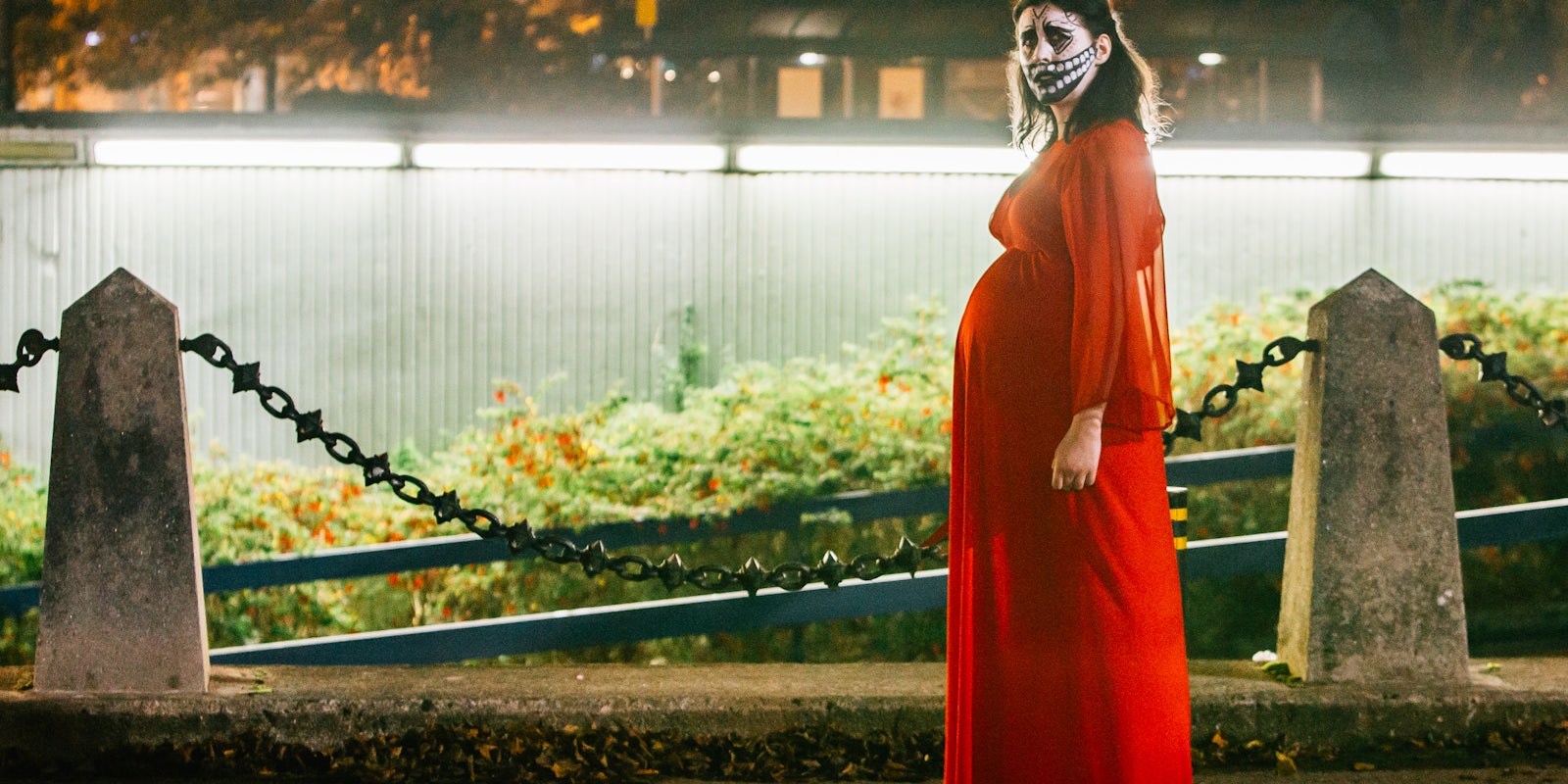In Prevenge, Alice Lowe plays Ruth, a widow with a bleak outlook on humanity. She’s also seven months pregnant, and her unborn child is communicating with her. Her baby has a bleak outlook, too—and a devious plan.
The film, which screened at SXSW this month, debuts Friday on AMC’s new streaming horror site Shudder. It also opens up a unique genre. Ruth’s baby is full of rage before even being born. Men are the main targets, but women aren’t exempt. Ruth has become a Trojan horse, and her midwife breaks the news to her: “She’s got all the control now.” Ruth lies in bed listening to the neighbors have sex, and gets a nudge: “That’s how I was made. You can forget about that ever happening again.”
Lowe—star of Ben Wheatley’s Sightseers and cult British comedy Garth Marenghi’s Darkplace—wrote, directed, and starred in Prevenge. She came up with the idea at seven months pregnant (though not via a talking fetus), shot it in less than two weeks, and did post-production after her daughter was born. (She sees the parallels between birth and post-production, of course.)
When I spoke with Lowe, her 15-month-old daughter Della was in the room too. In fact, she’s already done the festival circuit, and has a credit on IMDb. “She’s a working baby, basically” Lowe says. Della provided the squealing, ambient soundtrack for much of her mom’s interview.
It’s a layered piece of work. Prevenge, Lowe’s directorial debut, was the product not just of her fears of motherhood, but losing work by becoming a mother.
“I did want to direct something, but I kind of accepted that by getting pregnant, I probably wouldn’t get to direct,” Lowe says. “Possibly ever. Women are not famed for dominating the film industry. Especially not ones with tiny babies.”
She wrote Prevenge quickly, because she already had the experiential material. But it channels her own questions and insecurities about motherhood.
“All of my fears I just balled up into a film,” she says.
There has been a turn toward female-directed horror in the last few years (this year alone sees XX, Raw, The Lure, and The Bad Batch) in which women are written more complexly, and Lowe imbues Ruth with vulnerability and stubbornness. We don’t understand her actions, but we get a flickering thrill from watching her clumsily hack through offending parties. Ruth pushes through each absurd act with dead-eyed focus, though we come to find out that focus is shaped by grief, and that Prevenge has an emotional core.
Lowe cites Taxi Driver as an influential text, but lamented that there are few “maverick, outsider, loner” characters who are female. “I really liked this idea that vengeance is this ancient notion,” she says. Ruth’s third-act look is inspired by a scene in the 1934 film noir Crime Without Passion, which Lowe happened upon after researching the Furies, vengeful female goddesses of Greek mythology. Her flowing red dress represents the blood they emerge from—it’s no surprise to learn she’s a fan of Italian horror auteur Dario Argento.
Lowe wanted to raise the question of whether pregnancy changes women; would Ruth still be so vengeful if she wasn’t with child? How much control do we give over? The film is Lowe’s list of questions to the universe about what to expect, not just from motherhood, but humanity.


